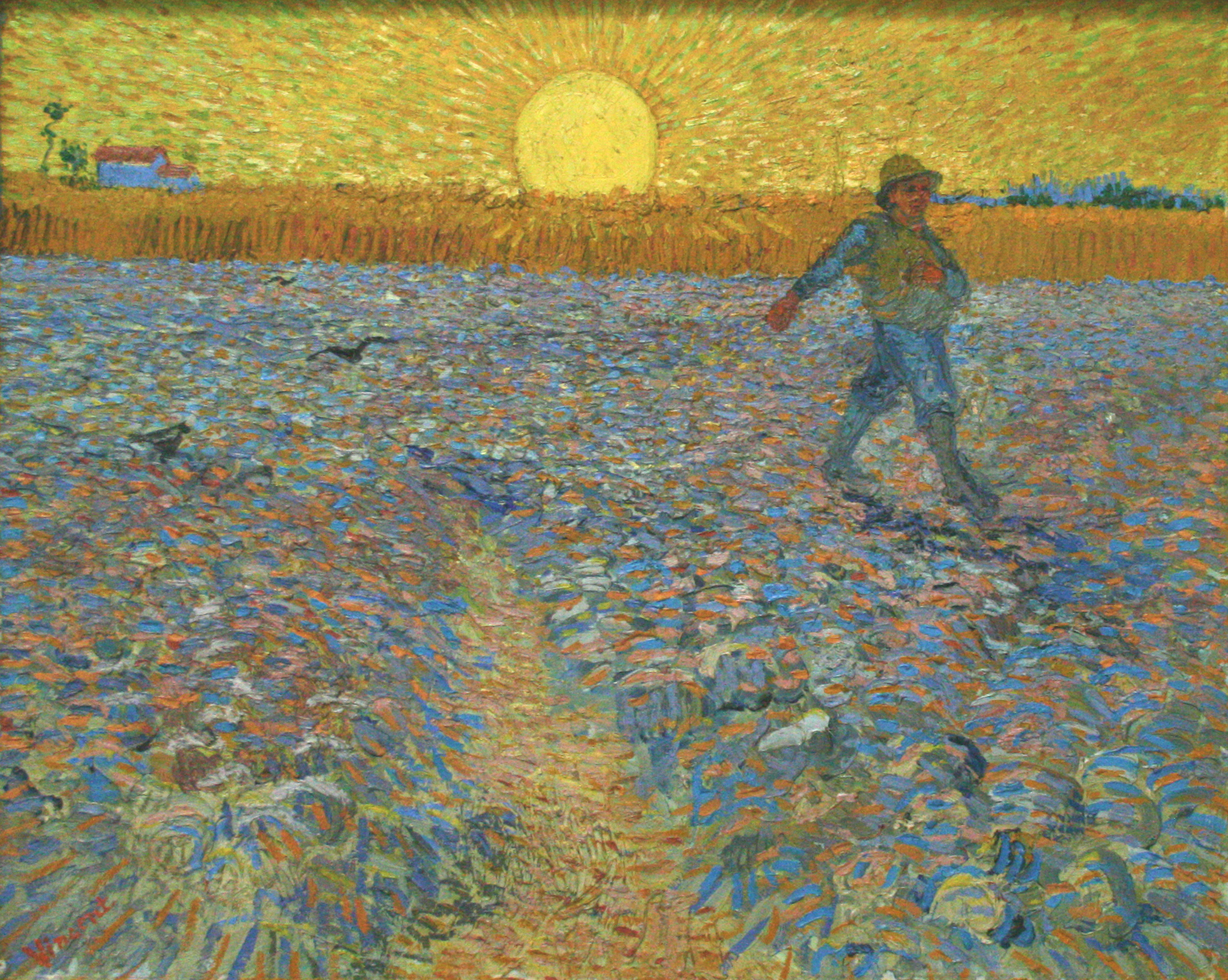那時,耶穌向群眾說:「天主的國好比一個人把種子撒在地裏,他黑夜白天,或睡或起,那種子發芽生長,至於怎樣,他卻不知道。因為土地自然生長果實:先發苗,後吐穗,最後穗又滿了麥粒。當果實成熟的時候,便立刻派人以鐮刀收割,因為到了收穫的時期。」
他又說:「我們以什麼比擬天主的國呢?或用什麼比喻來形容它呢?它好像一粒芥子,種在地裏的時候,比地上一切的種子都小;當下種之後,生長起來,比一切蔬菜都大;並且長出大枝,以致天上的飛鳥能棲息在它的蔭下。」耶穌用許多這樣的比喻,按照他們所能聽懂的,給他們講道。若不用比喻,他就不給他們講什麼,但私下裏卻給自己的門徒解釋一切。
馬爾谷福音 4:26-34
從先前撒種的比喻中,我們聽見有三類種子因不同的原因結不出果實,只有一些落在土壤裡,並結了很多果實。耶穌從而教導我們,能否得救,跟我們的信德和對祂聖言的回應有關。
在這日的福音中,耶穌進一步用比喻講解關於這些種下到土壤的種子。耶穌說「人把種子撒在地裏」,就是把良好的教導和意念放置在我們心中;沒有人能事先衡量結果會怎樣,但如果我們願意開放自己去接納,它們能影響我們步向聖善;如果我們讓天主的聖言改造我們,並把祂的教導付諸實行,便能如那些自然生長的種子,以善言善行結出好果實。
(本文以英文為準)
Jesus said to the crowds, “This is how it is with the Kingdom of God; it is as if a man were to scatter seed on the land and would sleep and rise night and day and the seed would sprout and grow, he knows not how. Of its own accord the land yields fruit, first the blade, then the ear, then the full grain in the ear. And when the grain is ripe, he wields the sickle at once, for the harvest has come.”
He said, “To what shall we compare the Kingdom of God, or what parable can we use for it? It is like a mustard seed that, when it is sown in the ground, is the smallest of all the seeds on the earth. But once it is sown, it springs up and becomes the largest of plants and puts forth large branches, so that the birds of the sky can dwell in its shade.” With many such parables he spoke the word to them as they were able to understand it. Without parables he did not speak to them, but to his own disciples he explained everything in private.
Mark 4:26-34
From the parable of the sower, we heard about the three seeds which perished in various ways, and the one which was saved; in which Jesus also shows three differences, according to the proportion of faith and practice. Here however, He puts forth a parable concerning only those who are saved. Therefore it is said, "And he said, So is the kingdom of God, as if a man should cast seed into the ground, etc."
Man casts seed to the ground, when he places a good intention in his heart; and he sleeps, when he already rests in the hope which attends on a good work. But he rises night and day because he advances amidst prosperity and adversity, though he does not know it for he is as yet unable to measure his increase, and yet virtue, once conceived, goes on increasing. Therefore when we conceive good desires, we put seed into the ground; when we begin to work rightly, we are the blade. When we increase to the perfection of good works, we arrive at the ear; when we are firmly fixed in the perfection of the same working, we already put forth the full corn in the ear.
參考 References:
Catena Aurea (St. Thomas Aquinas)
Pseudo-Chrysostom
Homily 2 on Ezekiel (St. Gregory the Great)

